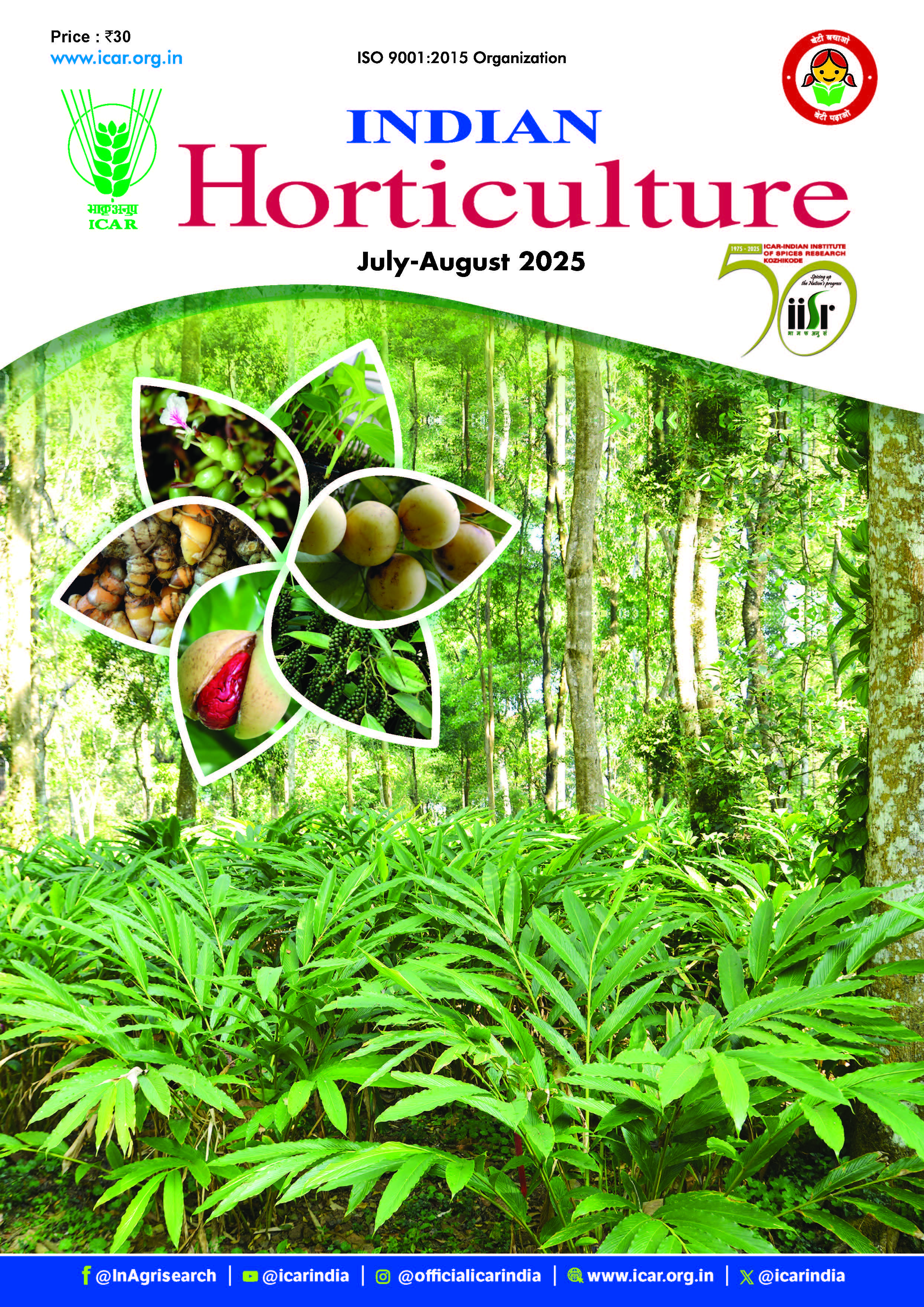A legacy of spice and science: The evolution of ICAR-IISR
108 / 170
Abstract
Spices have been pivotal to India’s political and economic narrative, sought after for their flavour, preservative qualities, and medicinal properties. In 1951, India initiated formal research on spices by establishing the Spices Enquiry Committee, leading to the Indian Council of Agricultural Research (ICAR) assuming structured oversight. This paper outlines the transformation of ICAR-IISR, tracing its development through successive institutional phases from regional stations to the National Research Centre for Spices, and ultimately its elevation to the Indian Institute of Spices Research. The institute’s impact is measured through its multidisciplinary research and technology dissemination, serving farmers, industry stakeholders, and academic entities. It conducts targeted programs across key spices such as black pepper, cardamom, ginger, turmeric, nutmeg, clove, garcinia, cinnamon, and vanilla. In 2016, ICAR-IISR redefined its mandate to concentrate on genetic resource management, production and disease-control strategies, validation of technologies, capacity building, and positioning India as a leader in spice exports.
Downloads
Downloads
Submitted
Published
Issue
Section
License
Copyright (c) 2025 Indian Horticulture

This work is licensed under a Creative Commons Attribution-NonCommercial-ShareAlike 4.0 International License.
Complete copyright vests with the Indian Council of Agricultural Research, who will have the right to enter into an agreement with any organization in India or abroad engaged in reprography, photocopying, storage and dissemination of information contained in it, and neither author nor his/her legal heirs will have any claims on royalty.
